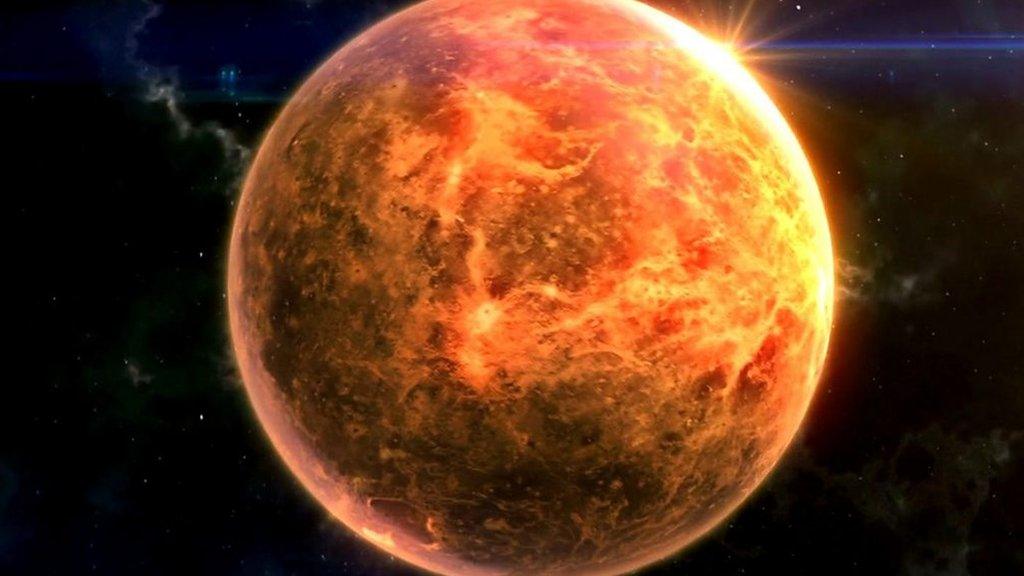What is a planetary parade?
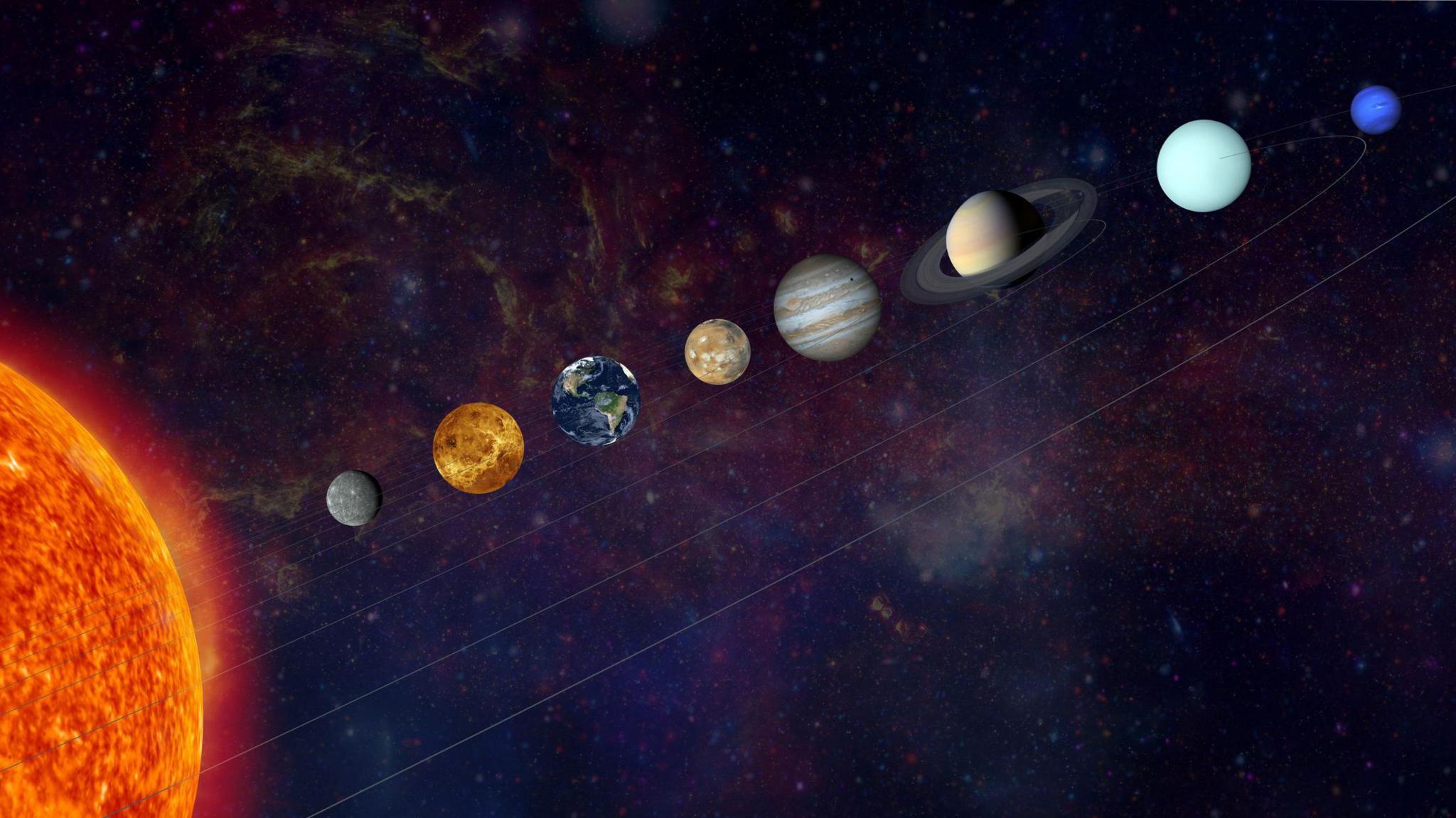
On 3 June, there will be a planetary parade, but it won't be as eye-catching as you might hope
- Published
On 3 June, six of the eight planets in our solar system will line up, in what is sometimes called a 'planetary parade'.
As dazzling a spectacle as it sounds, it's possible only two planets will actually be visible in the sky, but it's an exciting event for any space fan.
Read on to find out more about how it works.
More space stories
Euclid telescope: Biggest snaps of universe ever taken from space
- Published23 May 2024
Oldest person goes to space on Blue Origin rocket
- Published20 May 2024
Scientists shine light on the Sun's magnetic field
- Published23 May 2024
How does a planetary parade happen?
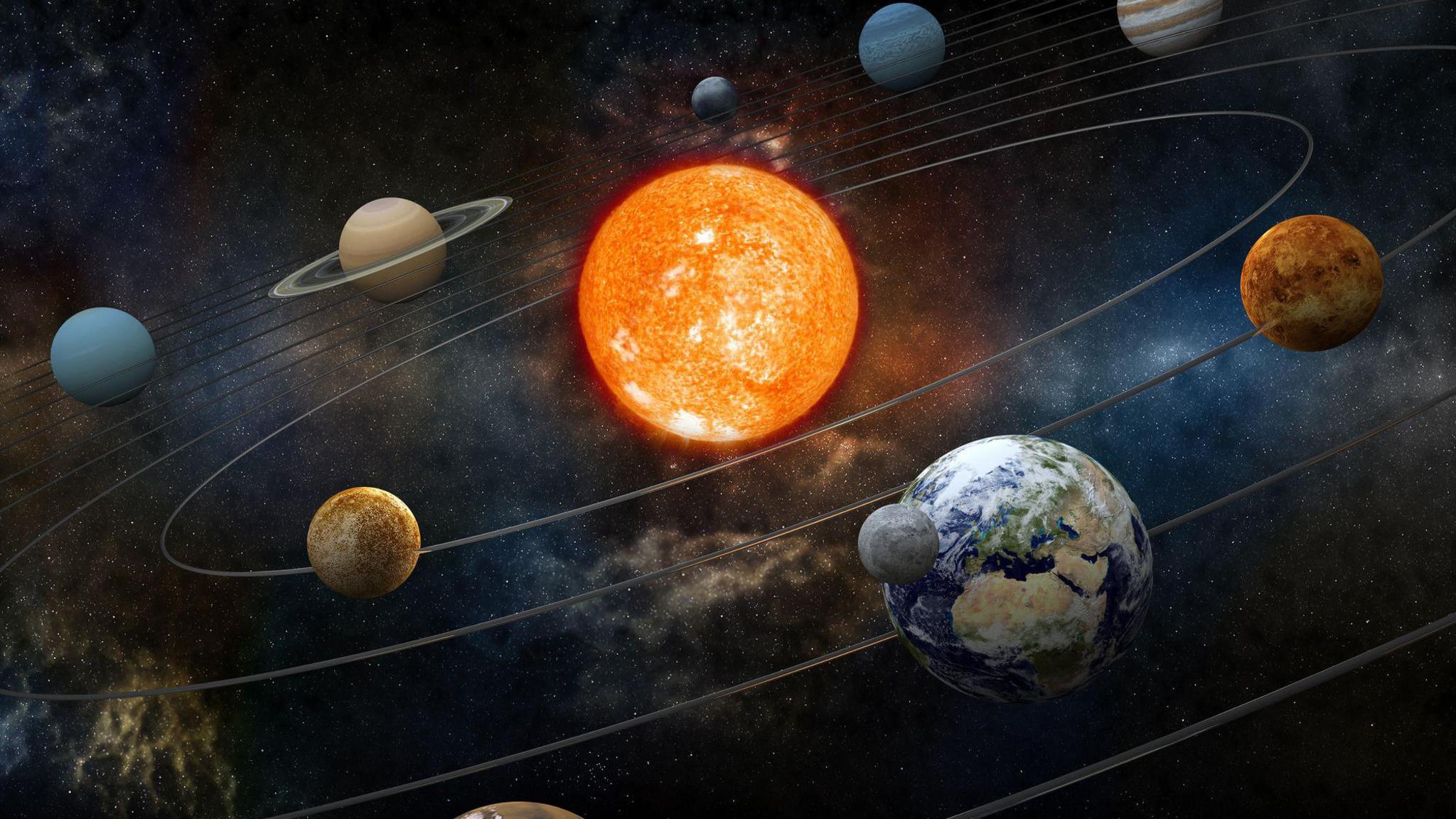
Our planets orbit the Sun
The planets in our solar system all travel around the Sun in an orbit.
Planets all take different times to complete a loop, but occasionally a few of them will reach a point at the same time.
When we look at the planets at this time from Earth, it appears as if they're in a line, or a parade!
It's fairly common for some of the planets to do this, however there will never be a time when all eight are in line.
Learn more about the planets with BBC Bitesize
What is the solar system?
- Attribution
Which planets will be visible on 3 June?
This planetary parade will be made up of six planets: Mercury, Mars, Jupiter, Saturn, Uranus and Neptune.
However, they might not all be visible.
“The Sun’s going to be photobombing the parade,” said Ronald Gamble, a theoretical astrophysicist at NASA’s Goddard Space Flight Center.
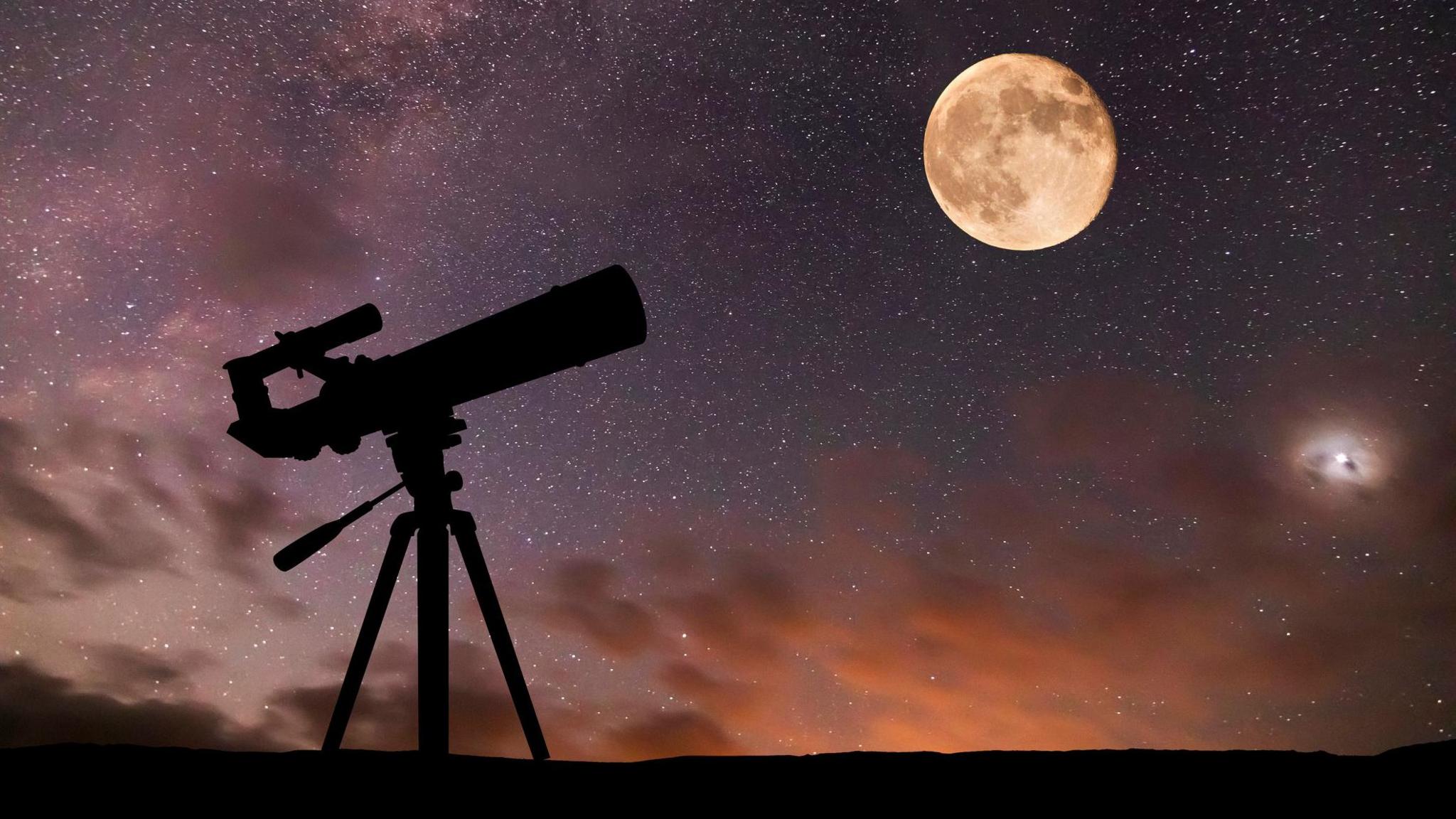
Only two planets will be visible without any equipment
Gregory Brown - Astronomer at Royal Observatory Greenwich - told BBC Newsround: "While there will be an alignment of planets in the sky around the 3rd June, the reality is that few of them will be easily visible."
You might be able to spot Neptune if you have good stargazing binoculars or a telescope, but even then it could be a fight to see it against the Sun.
Your best bet will be Mars and Saturn. They will hopefully be visible without any equipment, along with a crescent moon.
But you don't need to wait until June to see them - you can already see the pale red and yellow dots in the sky now, and they will be visible throughout the summer.
"As for the rest, while Mercury, Uranus and Jupiter may be possible to find with a telescope if you are lucky, they will be mostly hidden in the dawn light", Gregory added.
More like this
- Published13 April 2023
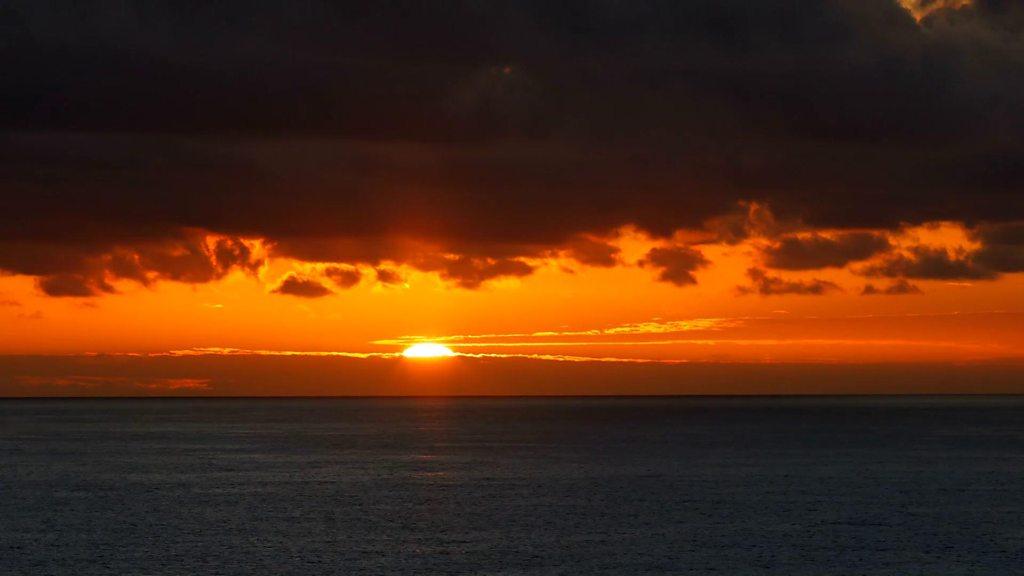
- Published8 June 2023
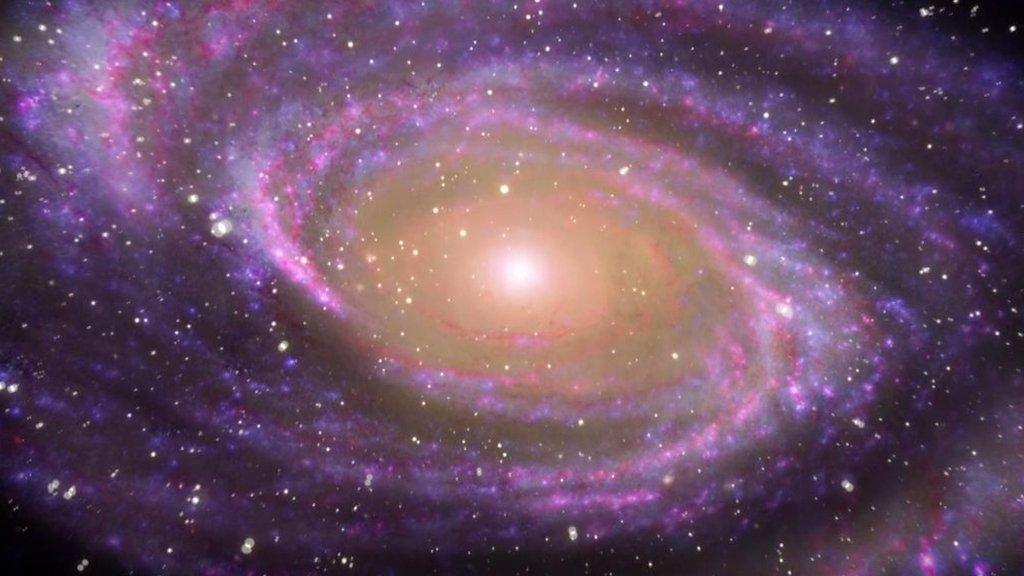
- Published16 February 2023
